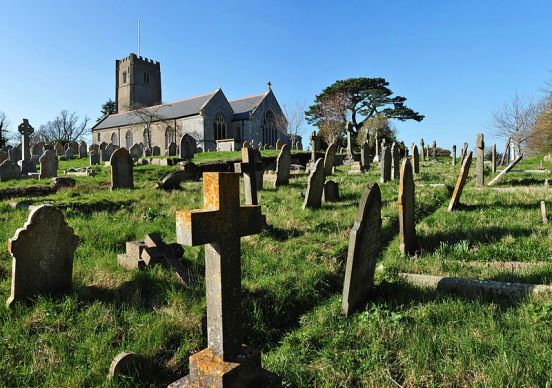主な違い – 墓地 vs 墓地
墓地と墓地という言葉は、どちらも死者が埋葬されている場所を指します。
この2つの言葉は多くの人が同じ意味で使うことが多いのですが、墓地と墓地には微妙な違いがあります。
墓地と墓地の主な違いは、墓地が教会の近くにあるのに対し、墓地は教会の近くにはないことです。
墓地とは
18世紀後半になると、ヨーロッパの人口が集中的に増加した。
墓地は埋葬のために十分ではなくなった。
そこで初めて、教会から離れた場所に埋葬地をつくるという考え方が導入されはじめた。
このような、教会に近くない埋葬地のことを墓地と呼ぶ。
つまり、墓地とは、教会堂の中にない大きな埋葬地のことである。
墓地の語源は古フランス語のcimetiereで、ギリシャ語のkoimeterion(寝場所、寮の意)に由来する。
墓場とは
Graveyard is a burial place situated beside a church. In Christian traditions, graveyard was often associated with the church. This is because burying of the dead was only allowed in lands near a church in the past. So a burial ground close to a church is called a graveyard. Graveyard literally refers to a yard full of graves. In the past, a graveyard was considered to be a part of the church. It was the church who had control over the process of burying the dead.
墓地と墓所の違い
-
墓地と墓地は、どちらも埋葬地を指します。
-
墓地は教会の近くにあるのに対し、墓地は教会の近くにはない。
-
墓地は、その歴史から宗教と関連付けることができる。
-
墓地には宗教的な意味合いはない。
“Common Burying Ground and Island Cemetery in Newport, Rhode Island” by Matt H. Wade. 自作、(CC BY-SA 3.0) via Commons Wikimedia
“イングランド、デヴォン州ハイウィークのオールセインツ教会とその墓地” by Smalljim – 自作自演 CC BY-SA 3.0) via Commons Wikimedia
保存する
